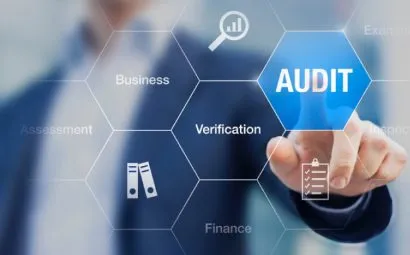Why is Cyber Security Audit and Compliance Critical for Modern Enterprises?

Cybersecurity has emerged as a critical issue for companies in this connected ecosystem. As the digital threat landscape evolves, organizations must reprioritize measures that secure sensitive data. Regular cybersecurity audits and compliance with appropriate policies are a key element of the security framework.
Understanding Cyber Security Audits
A cybersecurity audit is a systematic assessment of an organization’s security policies, processes, and systems. These audits help your company find its weaknesses in the network and understand where improvements are necessary. Regular assessments can help organizations evaluate how well their defenses are armed to cope with threats.
The Importance of Compliance
Abiding by cybersecurity regulations is paramount for a business to maintain trust and credibility with its clients. Companies must comply with industry-specific regulations and government guidelines to safeguard consumer data and avoid legal ramifications. Not only does cybersecurity audit and compliance secure information, but it also serves as a marketing tool for the enterprise, proving its commitment to high security standards.
Identifying Vulnerabilities
Cybersecurity audits allow system vulnerabilities to be identified. Auditors can pinpoint possible cyber attack entry points through an assessment of components, including software applications, hardware configurations, and access controls. Timely fixing of these vulnerabilities reduces the exposure to data breaches and related incidents.
Enhancing Data Protection
Keeping sensitive data safe and secure is one of an organization’s most significant concerns. Cybersecurity audits help ensure that effective measures are taken to protect this information from unauthorized access or loss. During an audit, various security strategies, such as encryption, multi-factor authentication, and regular software updates, can be reviewed and fortified.
Building a Security Culture
A common theme across all three rules is to foster a culture of security, which will bring long-term benefits to the organization. Periodic audits and compliance checks enable employees to be proud of the importance of cybersecurity. With efficient training and informative sessions, this mentality can be further strengthened, and everyone can play their part in keeping the enterprise safe.
Avoiding Financial Losses
It knows that losing sensitive information can have a significant financial impact on businesses. Legal fees, regulatory fines, or simply tarnishing the company’s name can all affect the bottom line. Making cybersecurity audits and compliance a priority will help organizations mitigate these risks and thus protect their financial health.
Strengthening Customer Trust
Customers are sensitive about privacy as it relates to their personal information. Regular audits and compliance initiatives in cybersecurity ensure customers that their data is safe with you. They are invaluable because this is trust; as a result, their customer loyalty is improved, opening doors for new business.
Preparing for Future Threats
The threat environment is always evolving, with a new challenge almost every day. Regular cybersecurity audits also allow organizations to stay ahead of the game by identifying trends and adjusting to new threats. This forward-looking approach allows enterprises to be prepared and resilient against evolving cyber challenges.
Streamlining Processes
Audits are a great opportunity to expose weaknesses and fix inefficiencies. By analyzing current procedures, organizations can identify duplications and reduce operational redundancies. Optimizing this process helps allocate resources more effectively and save costs in the long run.
Ensuring Legal Compliance
Legal compliance is an essential obligation for businesses. Cybersecurity audits verify that practices comply with the laws. Such compliance helps mitigate potential legal risks, shielding the organization from monetarily expensive penalties and sanctions.
Enhancing Employee Awareness
Your employees are typically the very first line of defence against cyber threats. Organizations can conduct audits and compliance checks to uncover gaps in employee knowledge and reinforce training where appropriate. Informing employees about best practices and threats creates a safe workplace.
Boosting Competitive Advantage
Strong cybersecurity can be a differentiating factor for an organization in a competitive environment. It also places these organizations ahead of the competition, given that clients tend to opt for companies that have taken measures towards security. A good security practice is a selling point and, at worst, a part of a competitive advantage.
Conclusion
Today, cybersecurity audits and compliance are imperative for organizations. They are essential for identifying vulnerabilities, safeguarding data, and staying compliant with laws. By adopting these practices, organizations can protect their assets, preserve their customers’ trust, and set themselves up for a successful journey safely and responsibly. Cybersecurity would not just be a requirement but a mark of excellence and integrity in business.

Source: Why is Cyber Security Audit and Compliance Critical for Modern Enterprises?



